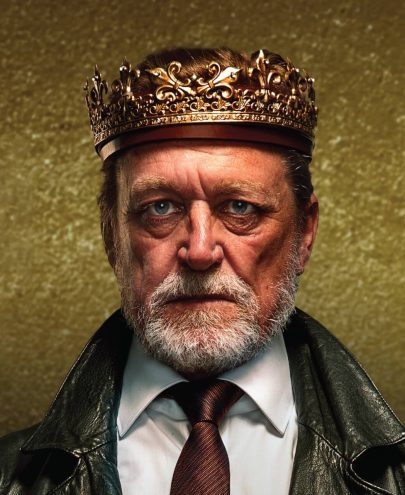Mar 23, 2014 Theatre
Auckland Theatre Company, directed by Colin McColl
Maidment Theatre
21 March, 2014
It is refreshing to see a clever and humorous play that examines the collision of Maori tikanga with a culture other than Anglo-Saxon. In Briar Grace-Smith’s new Paniora! it is a Spaniard who came ashore and took a number of wives, so creating many contemporary descendents. Some of them have gathered for the dedication of a new wharenui.
Jimmy (Kirk Torrance) has been active in raising the money, so too has his daughter Bonita (Torrance’s real daughter, Keporah) but it is his grandmother Te Mamaenui who provides true perspective for the audience in these opening scenes. Nancy Brunning entirely inhabits this acerbic, endearing kuia, from the point of her mantilla to the tips of her slippers.
Te Mamaenui, whose name translates as “intense pain”, has spent years plotting for Jimmy to marry Maria (Miriama Smith) who was whangai’d to her at the age of two. From this union will come a new leader. Never mind that Jimmy is already married to wife number three, a Pakeha, played with comic effect by Hera Dunleavy. Maria is also married, to unloved and henpecked Theo (Calvin Tuteao), who has built her a luxury home on tribal land.
The stage is set then, for rivalry, jealousy and plenty of duende; further Spanish flavour injected via Estaban Valdez (Bernie Duncan), a Spanish wide boy posing as a matador.
In this complex story of cultural tensions, thwarted love and intergenerational expectations the excellent cast are supported by seven dancers. The choreography excels – much more could be made of it. From Taiaroa Royal’s brilliant kaitiaki owl to the demons of duende to the four-dancer bull, these small moments of dance deepen and enliven the production. If Paniora! was extended and enriched by more dance, especially the exciting Spanish/Maori sequences, it could easily run for two hours with an interval.
This would also allow the writer to play out some of the big questions she leaves hanging. Te Mamaenui would be devastated, presumably, by the tragedy that occurs 10 minutes before the end of the play but she seems almost accepting of it. The audience is allowed to feel nothing either, partly because the deceased is an unappealing, selfish character and also because by this stage of the play we have stepped away from Latino Maori passion into a soapier treatment of the grand ideas scaffolding the play – fate, destiny, and inheritance.
These fade away beneath Jimmy and Maria’s poisoned love story and the ending is so rushed and undeveloped that it seems almost as if the final haka is an attempt to disguise a weak conclusion.
The play is strong enough to overcome this fault, however. Audiences will go out into the night entertained and delighted by this family story that reaches across time and race.
To April 12.





